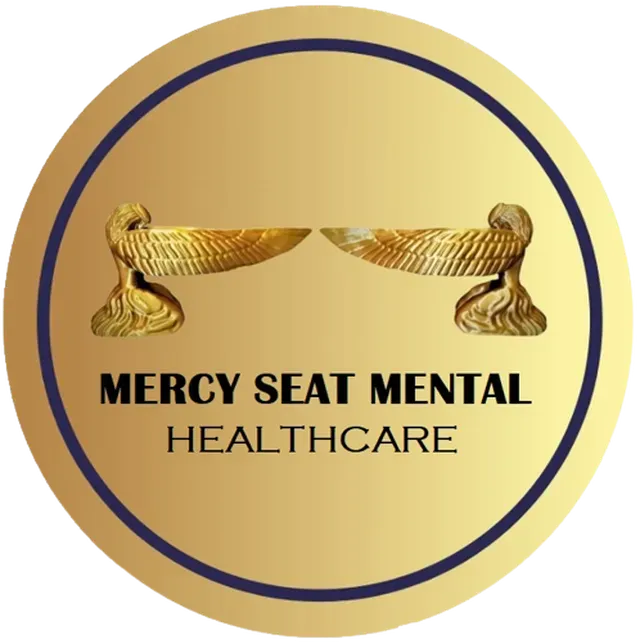IN THIS COMPREHENSIVE GUIDE, STELLA A TIH, DNP, PMHNP-BC, A SEASONED MENTAL HEALTH PROFESSIONAL AT MERCY SEAT MENTAL HEALTH TREATMENT CENTER, DELVES INTO THE SENSITIVE TOPIC OF EATING DISORDERS, INCLUDING BULIMIA, ANOREXIA, AND BINGE-EATING DISORDER.
by Stella A Tih, DNP, PMHNP-BC
Summary: In this comprehensive guide, Stella A Tih, DNP, PMHNP-BC, a seasoned mental health professional at Mercy Seat Mental Health Treatment Center, delves into the sensitive topic of eating disorders, including bulimia, anorexia, and binge-eating disorder. By unpacking the complexities, highlighting the signs, and emphasizing the path to recovery, this blog post aims to serve as a comforting companion that acknowledges the struggles and champions the journey towards health and self-acceptance.
In the safe confines of our Mercy Seat Mental Health Treatment Center here in Norco, California, numerous individuals step through a journey of vulnerability, courage, and recovery every day. Among the most heart-wrenching yet brave battles are those against eating disorders. As a committed mental health practitioner, I feel it is vital to shed light on these often-misunderstood conditions, addressing not only the struggles but also the hope that resides in recovery.
Eating Disorders: More Than Meets the Eye
Eating disorders, including bulimia nervosa, anorexia nervosa, and binge-eating disorder, are complex conditions that arise from a cocktail of long-standing behavioral, biological, emotional, psychological, and social factors. These disorders are characterized by a chronic disturbance of eating or eating-related behavior, resulting in the altered consumption or absorption of food that significantly impairs physical health and psychosocial functioning.
- Bulimia Nervosa involves periods of uncontrolled, impulsive, or continuous eating beyond the point of feeling comfortably full (bingeing), followed by compensatory behaviors such as forced vomiting, fasting, excessive exercise, or the misuse of laxatives, diuretics, or other medications (purging) to avert weight gain.
- Anorexia Nervosa is characterized by a distorted body image and excessive dieting that leads to severe weight loss, with a pathological fear of becoming fat.
- Binge-Eating Disorder (BED) is similar to bulimia in terms of consuming large amounts of food in a short time. However, individuals with BED do not regularly use inappropriate compensatory strategies to lose weight.
The Hidden Signals: Recognizing the Signs
Identifying eating disorders can be challenging as symptoms often occur in secrecy and are shrouded in silence. Beyond the evident changes in weight and eating habits, subtler signs include preoccupation with food, body weight, and shape, withdrawal from usual activities, shifts in mood, and even gastrointestinal complaints.
The consequences of untreated eating disorders can be severe, including heart and kidney problems, dental issues, bone loss, and, in extreme cases, death. The emotional burden, characterized by feelings of shame, anxiety, or depression, is equally heavy to bear.
Embracing Recovery: The Role of Compassionate Care
Recovery from an eating disorder is a deeply personal journey that requires a multidisciplinary approach. At Mercy Seat Mental Health Treatment Center, we believe in the healing power of comprehensive care, which involves nutrition education, medical monitoring, psychological intervention, and, when necessary, medication management.
It’s crucial to remember that recovery is not linear and involves navigating through successes and setbacks. However, with the right support, individuals can rediscover their self-worth, establish a healthy relationship with food, and embrace life beyond their eating habits.
Walking Together: Community and Support
For anyone struggling with an eating disorder, I want to emphasize that you are not alone in this journey. Your experiences are valid, and your feelings matter. There are numerous support groups and communities, both online and offline, that embrace and support individuals battling eating disorders.
At Mercy Seat, we are more than a clinic; we are a community ready to walk alongside you through every step of your recovery. Your bravery in seeking understanding and help is the first step towards healing, and we’re here to provide the empathetic, expert care you deserve.
Conclusion: The Journey Ahead
Eating disorders, shadowed by misunderstanding and stigma, are battles fought on multiple fronts. Recognizing the signs and understanding the complexities are pivotal starting points. As we continue to advocate for awareness, education, and better public health approaches, we also emphasize the human stories of resilience and recovery.
The path to recovery may be fraught with challenges, but it is also a journey of rediscovery and profound personal growth. Here, at Mercy Seat, we are committed to illuminating this path, offering a beacon of hope and a seat of comfort to all those ready to embark on the journey towards healing and self-acceptance.
For anyone who recognizes these struggles within themselves or others, we are here to help. Reach out to us at Mercy Seat Mental Health Treatment Center, and let us take these crucial steps towards recovery together.
Keywords: eating disorders, bulimia nervosa, anorexia nervosa, binge-eating disorder, mental health, recovery, treatment, support, health and wellness, Mercy Seat Mental Health Treatment Center.
